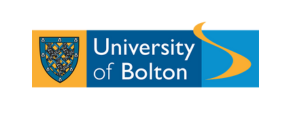Master of Science in Software Engineering (Professional Practice)
| Overview
The Master of Science in Software Engineering (Professional Practice) delivers a comprehensive curriculum that equips you with advanced expertise for a successful career in software engineering. This programme combines theoretical foundations with practical experience, ensuring you are well-prepared to meet the evolving challenges of the technology industry.
| Entry Requirement for the Master of science in Software Engineering
➔ A bachelor’s degree in Software Engineering, Computer Science, or a related field.
➔ Relevant professional experience in software engineering or related areas.
➔ Non-traditional qualifications may also be considered, possibly requiring a portfolio of work or an interview.
➔ If English is not your first language, need IELTS 6.0 with no less than 5.5 in any band.
| Benefits of the Programme
1. International Recognition: This Master programme is recognised globally, reflecting a high standard of academic excellence and making you a competitive candidate in the international job market.
2. Comprehensive Learning Experience: The curriculum covers a broad spectrum of advanced topics, providing a solid theoretical foundation and practical skills that directly apply to the industry.
3. Pathways to Further Education: Completing this MSc opens up opportunities for further academic pursuits, such as a PhD. It is widely accepted by universities worldwide for advanced studies.
4. Enhanced Career Opportunities: Graduates are well-prepared for various advanced roles, including Software Engineer, Systems Architect, AI Specialist, and more. Employers value the in-depth knowledge and skills gained through this program.
5. Global Career Mobility: The MSc qualification enhances your ability to pursue career opportunities globally. Multinational companies often prefer candidates with recognised advanced degrees.
6. Assured Quality: The programme adheres to stringent quality assurance standards, ensuring you receive a top-quality education that is both credible and valuable.
7. Flexible Learning Options: The programme offers flexible learning modes, including online resources and support, allowing you to balance your studies with other commitments.
| Required Documents for the Master of science in Software Engineering
➢ The bachelor’s degree in Software Engineering, Computer Science, or a related field.
➢ The bachelor’s degree Transcript.
➢ Copy of CIN card (for Moroccan students)
➢ Passport copy (for foreign students)
➢ 2 Photos
➢ Cover letter
➢ Resume
In Partnership With
Delivery Method
Fulltime/ Face to face
Duration
1 Year
Assessment
Assessment through examination and coursework assignments.
Start Date
September
Units:
8 units
Credits:
120
Programme Structure
Students must study the following modules:
















